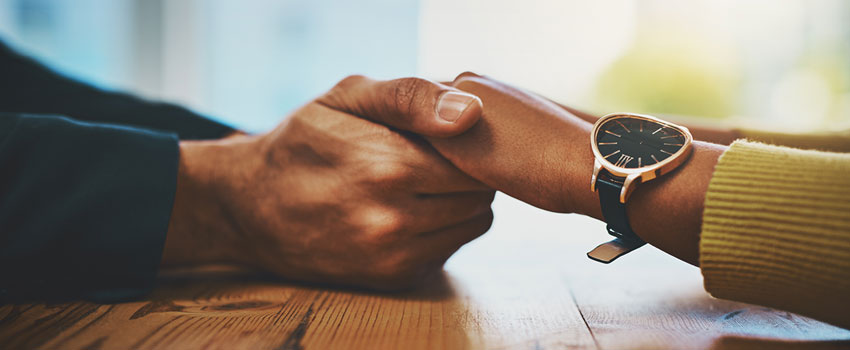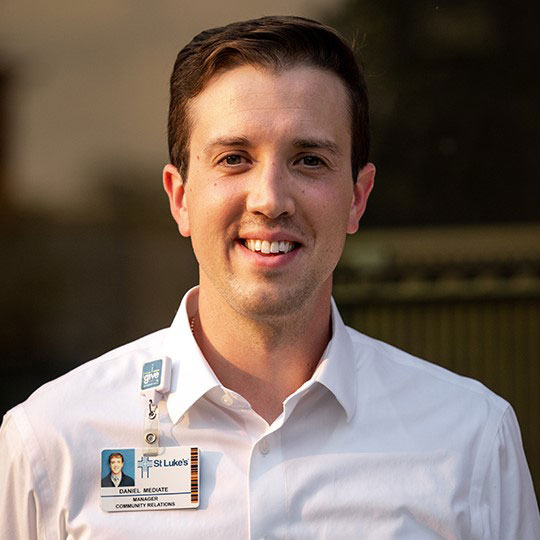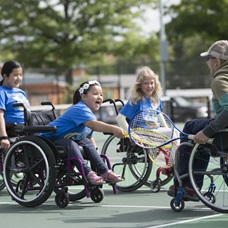Better Together
World Suicide Prevention Day: The Speedy Foundation, St. Luke’s nonprofit partner, urges people to check on each other during, after pandemic

For many, the COVID-19 pandemic has been accompanied by some unwelcome friends: illness, job loss, financial uncertainty, isolation.
“The anxiety rates have skyrocketed. The fear of the unknown, the financial implications of what’s happening and what else could come, is huge,” said Shannon Decker, executive director of The Speedy Foundation, an Idaho-based nonprofit organization devoted to supporting mental health and preventing suicide.
Despite such a challenging time, a positive glimmer has emerged; the state’s suicide rate has not significantly increased. The Speedy Foundation wants to keep it that way.
Research has showed that national tragedies, such as the terrorist attacks on Sept. 11, 2001, do not necessarily precipitate a spike in suicide. This could be because of the ‘pulling together effect,’ as recently noted in an article from JAMA Psychiatry, which suggests that people may provide support to each other during tough, shared experiences.
“If you sheltered in place, you were part of the solution to this greater problem. You were connected, even if you were alone, and even if you were suffering the repercussions, typically, you were still connected,” Decker said.
However, there is potential for an increase after society begins to move on from the disaster, or, in this case, the coronavirus.
“Once we start pulling out of the pandemic, it’s possible that suicide rates could rise,” Decker said. “That has historically happened. We have the opportunity right now to get the prevention pieces in place, to start having the conversations and to really put up our radar to recognize when someone is in crisis, to lean in and to intervene.”
Jeff Betts, clinical director of Behavioral Health at St. Luke’s Health System, echoes that approach, urging people to take time for their mental health.
“It is always important, but more so now, that we look after our mental as well as our physical health,” Betts said. “To mitigate the mental and emotional effects of COVID, it is good to increase your intention to develop a routine, increase and prioritize exercise, manage how you consume information, spend free time engaged in meaningful activities, and most of all stay connected to friends and loved ones.”
Suicide Awareness in Idaho, Nationally
This week marks National Suicide Prevention Week, and today, Sept. 10, is World Suicide Prevention Day. How can people join the fight against suicide?
“Now, more than ever, it’s checking up on someone,” Decker said. “It’s not a text message. It’s picking up the phone or going to someone’s house and standing in the driveway.
“It’s so important that we have an army of trained community members who are prepared to recognize signs and start conversations when they are concerned about someone.”
Since 2017, St. Luke’s has provided community health grants to The Speedy Foundation, supporting two suicide prevention training programs: Question, Persuade, Refer (QPR) and Mental Health First Aid (MHFA). In the past year, St. Luke’s Magic Valley has worked with The Speedy Foundation and Connect Hope to train more than 250 people in the Twin Falls area.
St. Luke’s also provided funding for Idaho’s 2018’s Statewide Suicide Prevention Plan overhaul.
“Suicide remains one of our most significant health issues across the communities we serve, and The Speedy Foundation has played a pivotal role in shaping statewide suicide prevention policy and programs,” said Theresa McLeod, St. Luke’s senior director of community engagement.
In July 2011, Jeret ‘Speedy’ Peterson, a three-time Olympic skier and Idaho resident, died by suicide. Decker, Peterson’s cousin, her family and friends started The Speedy Foundation, quickly growing into a prominent voice and resource in suicide prevention efforts nationwide.
In 2012, Decker and the foundation were instrumental in helping Idaho launch a statewide suicide prevention hotline. In 2016, Decker was one of only a handful of people providing QPR trainings in the Treasure Valley. St. Luke’s subsequently provided a grant to train more potential trainers.
“A lot of the trainings offered now are from people who participated in the ‘train-the-trainer’ program that was funded in part by St. Luke’s,” said Decker, who serves on the Olympic and Paralympic mental health taskforce
Despite the pandemic and current lack of in-person trainings, Decker has found ways to offer free, on-demand QPR training, available at thespeedyfoundation.org.
“I wish that suicide prevention training was as robust as CPR training, and that it just becomes part of the culture of every organization,” Decker said. “The Speedy Foundation’s overarching goal is to have a gatekeeper—someone who is trained in suicide prevention—in every home in America.”
Resources
- The Speedy Foundation
- Idaho Suicide Prevention Hotline: call or text 988
About The Author

Daniel Mediate works in the St. Luke’s Communications department.

